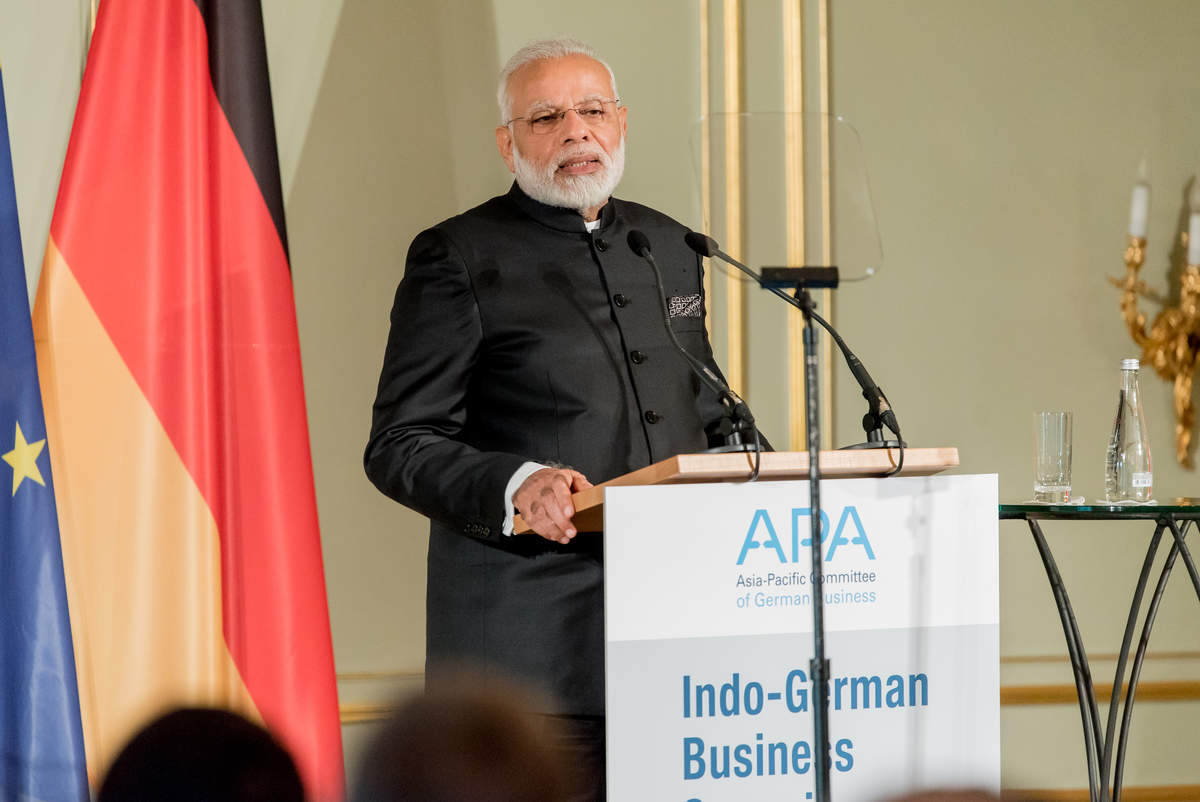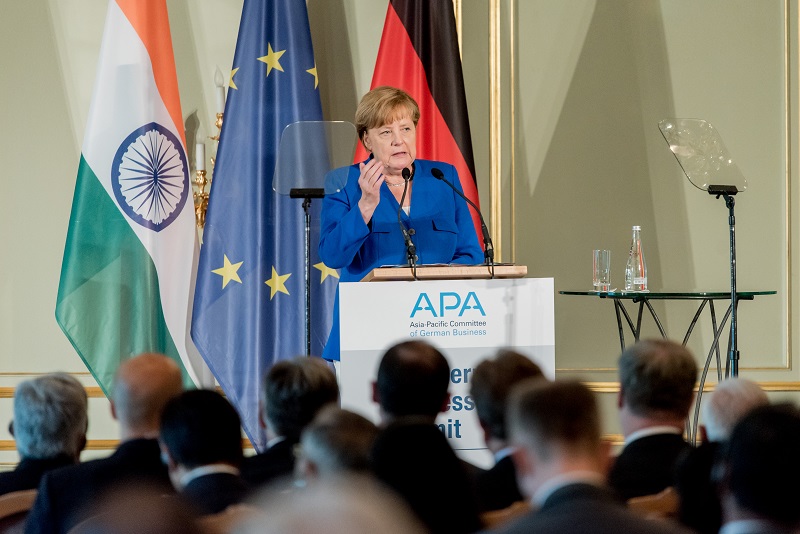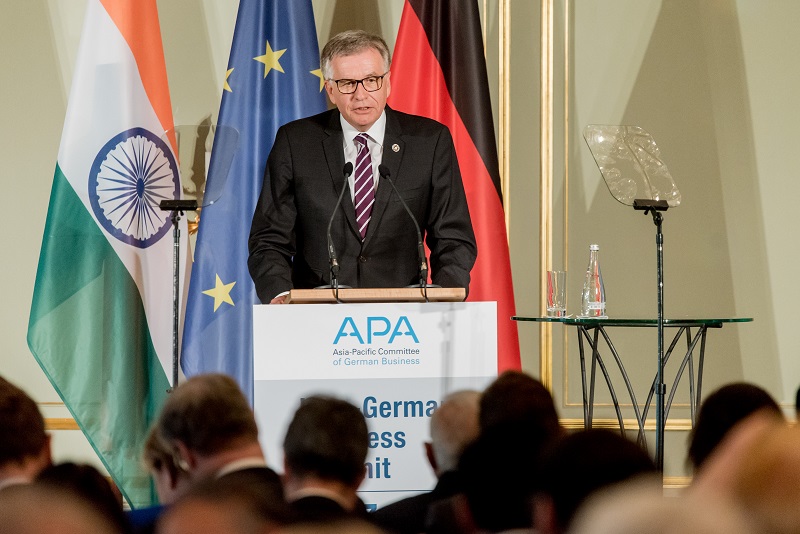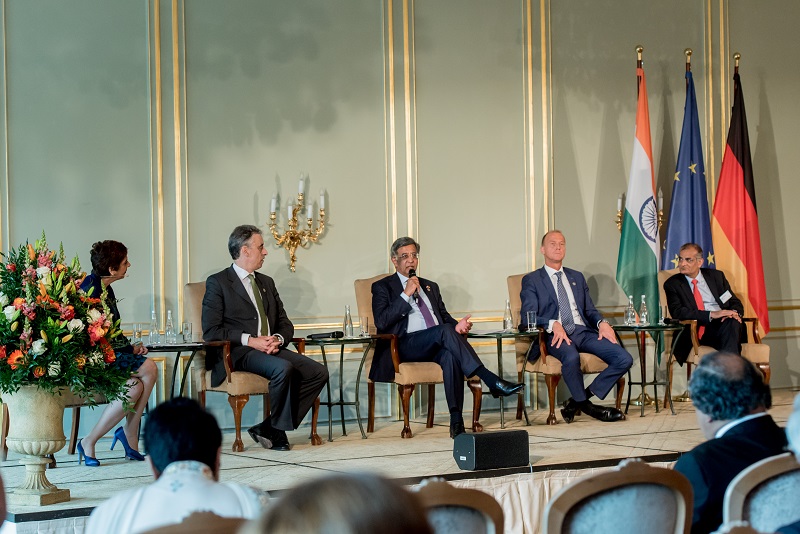Better framework conditions required in India
Existing market access barriers and inconvenient framework conditions still impede investments in India. Lienhard, Chairman of the Asia-Pacific Committee of German Business (APA), highlighted this during the Indo-German Business Summit 2017. At the summit, which was organized by the APA, he also discussed the opportunities that India offers.
The key issue of this year’s summit, which was jointly opened by Federal Chancellor Angela Merkel (CDU) and India’s Prime Minister Narendra Modi, was how German and Indian companies could strengthen and extent their collaboration.
During a luncheon with Federal Chancellor Merkel and Prime Minister Modi, both, President of the Federation of German Industries (BDI) Kempf and Lienhard, expressed that German companies have a great interest in closer economic relations with India. Nevertheless, German companies are careful about further investments in the country due to the cancellation of the Indo-German bilateral investment treaty. Kempf demanded that the Indian government prioritises and re-opens the negations for the bilateral EU-India Free Trade Agreement and provides a solution for investment protection.
Frank Appel (Deutsche Post DHL Group), Thomas Enders (AIRBUS), Rashesa C. Shah (Senior Vice President of the Federation of Indian Chamber of Commerce and Industry) and Baba Kalyani (Bharat Forge) used the panel discussion during the summit to discuss the economic reforms of Prime Minister Modi. The panellists welcomed the spirit of optimism in India and the introduction of the Goods and Service Tax effective as of early July 2017. However, the panellist were critical of lengthy administrative processes in India.







